- Home
- Rick Riordan
The Ship of the Dead Page 10
The Ship of the Dead Read online
Page 10
“What’s Mallory’s history with Loki?” I asked. “She seems…”
I wasn’t sure which word to use: Worried? Resentful? Homicidal?
Halfborn knotted his shoulders, making the serpent tattoos undulate across his back. He glanced at the top of the mast, as if considering more curse words at Mallory’s expense. “Not my place to say. But being baited into doing something you later regret…Mallory knows about that. It’s how she died.”
I thought back to my first days in Valhalla, when Halfborn had teased Mallory for trying to disarm a car bomb with her face. Her death must have had more to it. She’d been brave enough to attract the attention of a Valkyrie.
“Magnus, you’ve got to understand,” Halfborn said, “we’re both heading toward the places where we died. It may be different for you. You died in Boston, stayed in Boston. You haven’t been dead long enough to see the world change around you. But for us? Mallory’s got no wish to see Ireland again, even if we just sail past its shores. And me…I never wanted to return to Jorvik.”
I felt a pang of guilt. “Man, I’m sorry. Is that where you died?”
“Eh. Not the exact spot, but close. I helped conquer the city with Ivar the Boneless. It served as our base camp. Not much of a town, back in the day. I just hope they don’t still have vatnavaettir in the river.” He shuddered. “Bad.”
I had no idea what vatnavaettir were, but if Halfborn Gunderson considered them bad, I did not want to meet them.
Later that evening I checked in on T.J., who was standing at the prow, staring over the waves, drinking coffee, and nibbling a piece of hardtack. Why he liked hardtack, I couldn’t tell you. It was like a big saltine cracker made with cement instead of flour, and no salt.
“Hey,” I said.
He had trouble focusing on me. “Oh, hey, Magnus.” He offered me a cement cracker. “Want one?”
“I’m good, thanks. I might need my teeth later on.”
He nodded as if he hadn’t gotten the joke.
Ever since I’d told the crew about my conversation with Njord, T.J. had been quiet and withdrawn, about as close as he ever got to brooding.
He dipped his hardtack in the coffee. “I’ve always wanted to go to England. I just never thought it would be after I was dead, on a quest, on a bright yellow warship.”
“England?”
“That’s where we’re heading. Didn’t you know?”
When I thought about England, which wasn’t very often, I thought of the Beatles, Mary Poppins, and guys wearing bowler hats, carrying umbrellas, and saying pip, pip cheerio. I didn’t think about hordes of Vikings or places called Jorvik. Then I remembered that when I first met Halfborn Gunderson, he’d told me he died invading East Anglia. That had been a kingdom in England, like, twelve hundred years ago. Those Vikings really got around.
T.J. leaned on the rail. In the moonlight, a thin streak of amber glowed across his neck—the path of a minié ball that had grazed him during his first battle as a Union Army soldier. It seemed strange to me that you could die, reach Valhalla, get resurrected daily for a hundred and fifty years, and still carry a tiny scar you got in your mortal life.
“Back in the war,” he said, “we all worried that Great Britain would declare for the Rebels. The British had abolished slavery way before we did—the Union, I mean—but they needed Southern cotton for their textile mills. The fact that the UK stayed neutral and didn’t side with the South—that was a huge factor in the North winning the war. It always gave me a warm feeling toward the Brits. I dreamed about going there someday and saying thank you in person.”
I tried to detect sarcasm or irony in his tone. T.J. was the son of a freed slave. He’d fought and died for a country that kept his family in chains for generations. He even carried the name of a famous slaveholder. But T.J. said we when he talked about the Union. He wore his uniform proudly after more than a century. He dreamed about crossing the ocean to thank the British just because they’d done him the favor of staying neutral.
“How do you always find the bright side?” I marveled. “You’re so…positive.”
T.J. laughed, nearly choking on his hardtack. “Magnus, buddy, if you’d seen me right after I got to Valhalla? Nah. Those first few years were rough. Union soldiers weren’t the only ones who made it to Valhalla. Plenty of Rebels died with swords in their hands. Valkyries don’t care which side of the war you fight on, or how just your cause is. They look for personal bravery and honor.” There. Just a hint of disapproval in his voice. “First couple of years I was an einherji, I saw some familiar faces come through the feast hall—”
“How did you die?” I asked. “The real story.”
He traced the rim of his cup. “Told you. Charging the battlements at Fort Wagner, South Carolina.”
“There’s more to it. A few days ago, you warned me about accepting challenges. You talked like you had personal experience.”
I studied the line of T.J.’s jaw, the tension bottled up there. Maybe that was why he liked hardtack. It gave him something difficult to grind his teeth against.
“A Confederate lieutenant singled me out,” he said at last. “I have no idea why. Our regiment was hunkered down, waiting for the order to charge the battlements. The enemy fire was withering. None of us could move.”
He glanced over. “And then this Reb officer stood up on the enemy lines. He pointed across no-man’s-land with his sword, right at me, like somehow he knew me. He shouted, ‘You, n—’ Well, you can guess what he called me. ‘Come out and fight me man-to-man!’”
“Which would have been suicide.”
“I prefer to think of it as a hopeless display of bravery.”
“You mean you did it?”
His coffee cup trembled between his hands. The piece of hardtack in it started to dissolve, expanding like a sponge, brown liquid soaking into the white starch.
“When you’re a child of Tyr,” he said, “you can’t turn down a personal duel. Somebody says fight me, and you do it. Every muscle in my body responded to that challenge. Believe me, I didn’t want to go one-on-one with that…guy.”
He’d obviously been thinking of a word other than guy. “But I couldn’t refuse. I went over the top, charged the Reb fortifications all by myself. I heard later, after I was dead, that my action triggered the offensive that led to the fall of Fort Wagner. The rest of the fellows followed my example. Guess they figured I was so crazy, they’d better back me up. Me, I just wanted to kill that lieutenant. I did, too. Jeffrey Toussaint. Shot him once in the chest, then got close enough to jab my bayonet right into his gut. Of course, by then the Rebs had shot me about thirty times. I fell in their ranks and died smiling up at a bunch of angry Confederate faces. Next thing I knew, I was in Valhalla.”
“Odin’s undies,” I muttered, which was a curse I saved for special occasions. “Wait…the lieutenant you killed. How did you learn his name?”
T.J. gave me a rueful smile.
Finally, I understood. “He ended up in Valhalla, too.”
T.J. nodded. “Floor seventy-six. Me and old Jeffrey…we spent about fifty years killing each other over and over again, every day. I was so filled with hate. That man was everything I despised and vice versa. I was afraid we’d end up like Hunding and Helgi—immortal enemies, still sniping at each other thousands of years later.”
“But you didn’t?”
“Funny thing. Eventually…I just got tired of it. I stopped looking for Jeffrey Toussaint on the battlefield. I figured something out. You can’t hold on to hate forever. It won’t do a thing to the person you hate, but it’ll poison you, sure enough.”
He traced the minié ball scar with his finger. “As for Jeffrey, he stopped showing up in the feast hall. Never saw him again. That happened to a lot of the Confederate einherjar. They didn’t last. They locked themselves in their rooms, never came out. They faded away.”
T.J. shrugged and continued. “I guess it was harder for them to adjust. You think the world is
one way, then you find out it’s much bigger and stranger than you ever imagined. If you can’t expand your thinking, you’re not going to do well in the afterlife.”
I recalled standing with Amir Fadlan on the rooftop of the Citgo building, cradling his head and willing his mortal mind not to fracture under the weight of seeing the Bifrost Bridge and the Nine Worlds.
“Yeah,” I agreed. “Expanding your brain hurts.”
T.J. smiled, but I no longer thought of it as an easy smile. It was hard-won, as courageous as a solitary soldier charging enemy lines. “You’ve accepted your own personal challenge now, Magnus. You’re going to have to face Loki one-on-one. There’s no going back. But if it helps, you won’t be charging those fortifications by yourself. We’ll be right there with you.”
He patted my shoulder. “Now, if you’ll excuse me…” He handed me his coffee-and-hardtack soup like this was a fantastic gift. “I’m off to get some shut-eye!”
Most of the crew slept belowdecks. The Big Banana, we had discovered, would unfold as many rooms as we needed to be comfortable, regardless of the exterior size of the hull. I wasn’t sure how that worked. Even though I was a Doctor Who fan, I didn’t feel like testing the limits of our bright yellow TARDIS. I preferred sleeping on the deck, under the stars, which is where I was on our third morning at sea, when Alex shook me awake.
“Let’s go, Chase,” she announced. “We’re running Samirah through her paces. I’m going to teach her how to defy Loki even if it kills us. And by us, I mean you.”
I SAW my problem immediately.
I should never have introduced Alex to Percy Jackson. She had learned way too much from his relentless training methods. Maybe Alex couldn’t summon sea animals, but she could turn into them. That was just as bad.
We started with Samirah and Alex fighting each other—on the deck, in the water, in the air. My job was to call out random animals from a stack of flash cards Alex had made. I’d shout, “MONKEY!” and Sam was supposed to turn into a monkey mid-combat, while Alex shape-shifted continually from human to animal to human, doing her best to beat up Sam.
Whenever Alex was in human form, she tossed out taunts like “Come on, al-Abbas! You call that a cotton-topped tamarin? Do better!”
After an hour of combat charades, Samirah’s face gleamed with sweat. She’d taken off her hijab and tied back her long brown hair so she could fight better. (She considered us all family, so she had no problem going hijab-less when required.) She leaned against the rail, taking a breather. I almost offered her some water, then I remembered she was fasting.
“Maybe we should take a break until tonight,” I suggested. “After dark, you can eat and drink. This must be killing you.”
“I’m fine.” Sam wasn’t a very good liar, but she forced a smile. “Thanks, though.”
Alex paced the deck, consulting her clipboard. A clipboard, y’all, like she was gunning to be assistant manager at the Hotel Valhalla. She wore green skinny jeans with a pink tank top, the front stitched with an inappropriate hand gesture in glittery sequins. Her hair had started to grow out, the black roots making her look even more imposing, like a lion with a healthy mane.
“Okay, Magnus, your turn,” she told me. “Get Jack and prepare to fight.”
Jack was pleased to help. “Combat time? Cool!” He floated in a circle around me. “Who are we fighting?”
“Sam,” I said.
Jack froze. “But I like Sam.”
“We’re just practicing,” I said. “Try to kill her without really killing her.”
“Oh, phew! Okay. I can do that.”
Alex had a clicker. Her cruelty knew no bounds. Jack and I double-teamed Sam—Jack attacking with his blade, obviously; me with a mop handle, which I doubt struck terror into Sam’s heart. She dodged and weaved and tried to land hits on us with her ax, the blade wrapped in sail canvas. Sam was supposed to shape-shift whenever Alex clicked her clicker, which she did at random intervals with no regard for Sam’s situation.
The idea, I guessed, was to condition Samirah to change shape whenever, wherever she had to without second-guessing herself.
Jack held back, I could tell. He only whacked Sam a couple of times. Me, I was less than successful with my mop. Combat maneuvering on the deck of a Viking ship turned out to be one of the many important skills I did not have. I tripped over the oars. I got snagged in the rigging. Twice, I bonked my head on the mast and fell into the ocean. About average for me, in other words.
Sam had no such trouble. She left me bruised and battered. The only time I landed a hit was when Alex clicked at a particularly bad time. Mid-lunge, Sam turned into a parrot and flew beak-first into my mop handle. She squawked, turned back into a human, and sat down hard on the deck, a cloud of blue and red feathers fluttering around her.
“Sorry, Sam.” I felt mortified. “I’ve never hit a parrot before.”
Despite her bloody nose, she laughed. “It’s fine. Let’s try that again.”
We fought until we were both spent. Alex called our practice done, and the three of us slumped against the rail shields.
“Whew!” Jack propped himself next to me. “I’m exhausted!”
Since all the energy he expended would come out of me as soon as I took hold of him, I decided to let Jack stay in blade form a while longer. I wasn’t ready to go comatose until after I had lunch.
But at least I could have lunch.
I glanced at Samirah. “This Ramadan thing. I seriously don’t know how you do it.”
She raised an eyebrow. “You mean why I do it?”
“That, too. You really have to endure the fast for a whole month?”
“Yes, Magnus,” she said. “It may surprise you to learn that the month of Ramadan lasts one month.”
“Glad you haven’t completely lost your snark.”
She dabbed her face with a towel, which was apparently not forbidden. “I’m more than halfway through the month. It’s not so bad.” She frowned. “Of course, if we all die before the end of Ramadan, that would be irritating.”
“Yeah,” Alex agreed. “Loki burns down the Nine Worlds while you’re fasting, and you can’t even have a drink of water? Ouch.”
Sam swatted her arm. “You have to admit, Fierro, I was more focused today. Ramadan helps.”
“Eh, maybe,” Alex said. “I still think you’re crazy to fast, but I’m not as worried as I was.”
“I feel clearer,” Sam said. “Emptier, in a good way. I’m not freezing up as much. I’ll be ready when I face Loki, inshallah.”
Sam didn’t use that term much, but I knew it meant God willing. Though it obviously helped her, it never inspired much confidence in me. I’m going to do great, inshallah was sort of like saying I’m going to do great, assuming I don’t get run over by a truck first.
“Well,” Alex said, “we won’t know what’ll happen until you’re facing dear old Mom-slash-Dad. But I’m cautiously optimistic. And you didn’t kill Magnus, which I suppose is good.”
“Thanks,” I muttered.
Even that little bit of consideration from Alex—the idea that my death might be slightly disagreeable to her—gave me a warm and fuzzy feeling. Yeesh. I was pathetic.
The rest of the afternoon, I helped out around the Big Banana. Despite the automatic sailing, there was still plenty to do: swabbing decks, untangling lines, preventing Mallory and Halfborn from killing each other. The chores kept me from thinking too much about my impending confrontation with Loki, or what Blitz and Hearth might be up to. They’d already been gone three days, and we now had just under two weeks until Midsummer, maybe even less time until the ice melted enough to let Loki’s ship sail. How long could it take Blitz and Hearth to find a rock?
Naturally, the idea of searching for a whetstone brought back bad memories of my last quest with Blitz and Hearth, when we’d been trying to find the Skofnung Stone. I told myself there was no connection. This time there would be no brutal Alfheim sunlight, no evil violin-playing nøk
ks, no scowling, sadistic elf father.
Soon, Hearth and Blitz would come back and report on a completely different set of dangerous obstacles for us to overcome! Every time a wave broke over the bow, I watched the sea spray, hoping it would solidify into my friends. But they did not reappear.
A couple of times during the afternoon, small sea serpents swam by—like, twenty-footers. They eyed the ship but didn’t attack. I guessed they either didn’t like banana-flavored prey or were scared off by Jack’s singing.
Jack followed me around the deck, alternating between Abba hits (Vikings are huge Abba fans) and telling me stories about the old days when he and Frey would roam the Nine Worlds, spreading sunshine and happiness and occasionally killing people.
As the day wore on, this became a personal test of endurance: Did I want to return Jack to runestone form and pass out from the toll of our combined exertions, or did I want to listen to him sing some more?
Finally, around sunset, I couldn’t stand it any longer. I stumbled aft to where I’d set up my sleeping bag. I lay down, enjoying the sound of Samirah doing her evening prayer on the foredeck, the singsong poetry soft and relaxing.
It seemed strange, the Muslim Maghrib prayer aboard a Viking ship full of atheists and pagans. Then again, Samirah’s ancestors had been dealing with Vikings since the Middle Ages. I doubted this was the first time prayers to Allah had been said aboard a longship. The world, the worlds, were a lot more interesting because of constant intermixing.
I returned Jack to runestone form and barely had time to reattach him to my neck chain before I passed out.
In my dreams, I got to witness a murder.
I STOOD with four gods at the crest of a hill, next to the ruins of a thatched hut.
Odin leaned on a thick oaken staff, chain mail glinting under his blue travel cloak. A spear was strapped across his back. A sword hung at his side. His one good eye gleamed under the shade of his blue wide-brimmed hat. With his grizzled beard, eye patch, and assorted weapons, he looked like a guy who couldn’t decide whether to go to a Halloween party as a wizard or a pirate.
Next to him stood Heimdall, the guardian of the Bifrost Bridge. Smartphones must not have been invented yet, because he wasn’t doing his usual thing of taking pictures every five seconds. He was dressed in armor of thick white wool, with two swords sheathed in an X across his back. Gjallar, the Horn of Doomsday, dangled from his belt, which didn’t strike me as very safe. Anybody could’ve run up behind him, blown that horn, and started Ragnarok as a practical joke.
The third god, my father, Frey, knelt next to the ashes of a campfire. He wore faded jeans and a flannel shirt, though I didn’t see how those clothes could have been invented yet. Maybe Frey was a medieval beta-tester for REI. His blond hair swept across his shoulders. His bristly beard glowed in the sunlight. If there had been any justice in the world, the thunder god Thor would’ve looked like this—blond and handsome and regal, not like a muscle-bound redheaded fart machine.
The fourth god I had never met, but I recognized him from Njord’s holographic show-and-tell: Kvasir, the living peace treaty between the Aesir and Vanir. He was a handsome guy considering that he originated as a cup of divine spit. His dark curly hair and beard rippled in the breeze. Homespun robes enfolded him, giving him that Jedi-master vibe. He knelt next to my father, his fingers hovering over the charred remnants of the campfire.
Odin leaned toward him. “What do you think, Kvasir?”
That question alone told me how much the gods respected Kvasir. Normally Odin did not ask for the opinions of others. He simply gave answers, usually in the form of riddles or PowerPoint presentations.
Kvasir touched the ashes. “This is Loki’s fire, all right. He was here recently. He is still close by.”
Heimdall scanned the horizon. “I don’t see him anywhere in a five-hundred-mile radius, unless…No, that’s an Irishman with a nice haircut.”
“We must catch Loki,” Odin grumbled. “That flyting was the last straw. He must be imprisoned and punished!”
“A net,” Kvasir announced.
Frey scowled. “What do you mean?”
“See? Loki was burning the evidence.” Kvasir traced a barely discernible pattern of crossed lines in the ashes. “He was trying to anticipate our moves, considering all the ways we might capture him. He wove a net, then quickly burned it.”
Kvasir rose. “Gentlemen, Loki has disguised himself as a fish. We need a net!”
The others looked amazed, like Holmes, how did you do that?
I waited for Kvasir to cry, The game’s afoot! Instead he shouted “To the nearest river!” and strode off, the other gods hurrying after him.
My dream changed. I saw flashes of Kvasir’s life as he traveled the Nine Worlds, advising the locals on everything from farming to childbirth to tax deductions. All mortal beings loved him. In every town, castle, and village, he was greeted like a hero.
Then one day, after filling out some particularly difficult tax forms for a family of giants, he was on the road to Midgard when he was stopped by a pair of dwarves—stunted, warty, hairy little guys with malicious smiles.
Unfortunately, I recognized them—the brothers Fjalar and Gjalar. They’d once sold me a one-way boat ride. According to Blitzen, they were also notorious thieves and murderers.
“Hello!” Fjalar called to Kvasir from the top of a boulder. “You must be the famous Kvasir!”

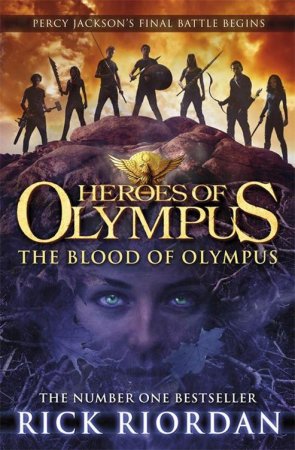 The Blood of Olympus
The Blood of Olympus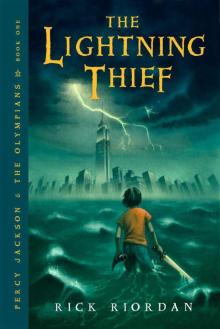 The Lightning Thief
The Lightning Thief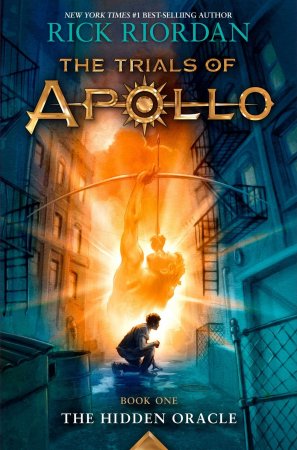 The Hidden Oracle
The Hidden Oracle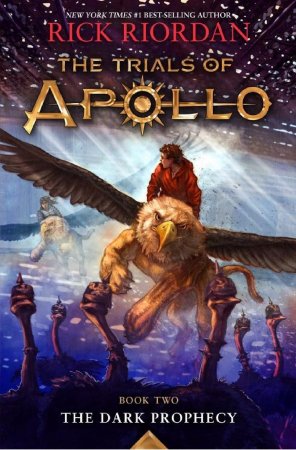 The Dark Prophecy
The Dark Prophecy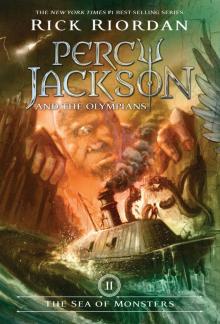 The Sea of Monsters
The Sea of Monsters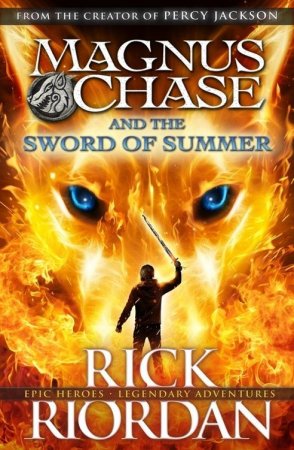 The Sword of Summer
The Sword of Summer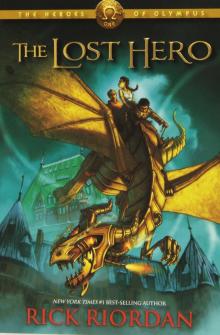 The Lost Hero
The Lost Hero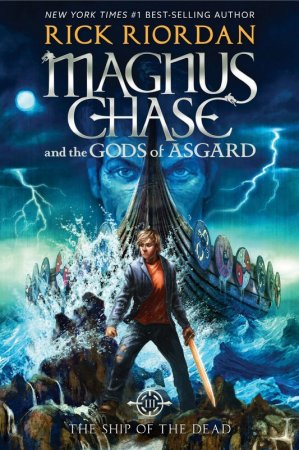 The Ship of the Dead
The Ship of the Dead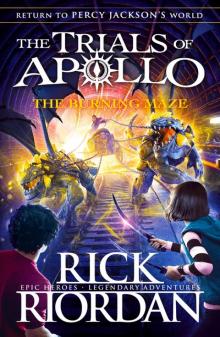 The Burning Maze
The Burning Maze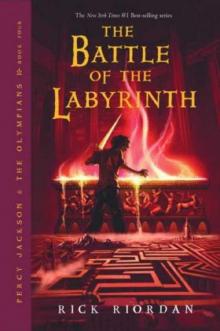 The Battle of the Labyrinth
The Battle of the Labyrinth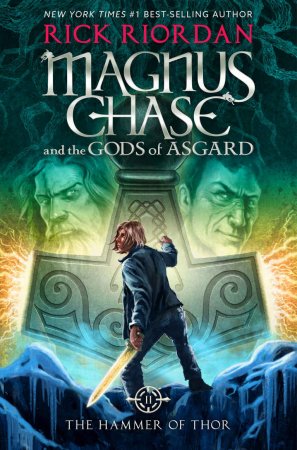 The Hammer of Thor
The Hammer of Thor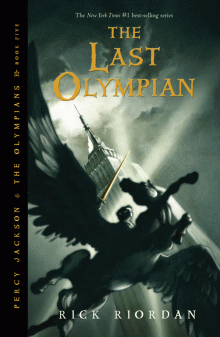 The Last Olympian
The Last Olympian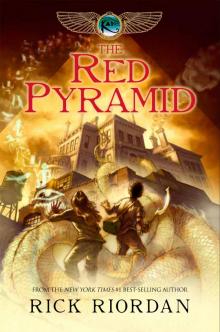 The Red Pyramid
The Red Pyramid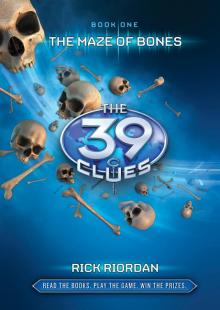 The Maze of Bones
The Maze of Bones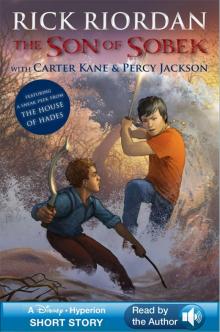 The Son of Sobek
The Son of Sobek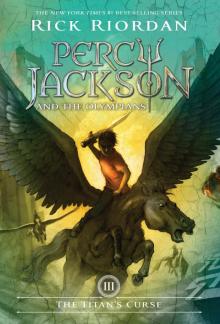 The Titans Curse
The Titans Curse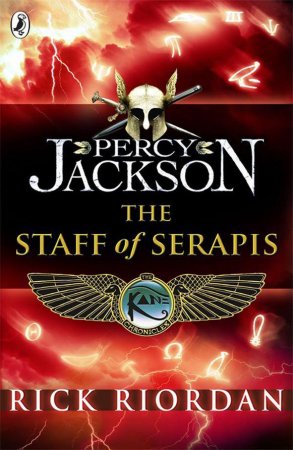 The Staff of Serapis
The Staff of Serapis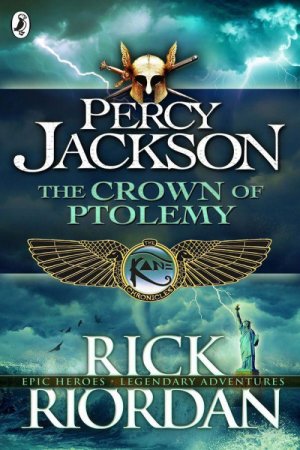 The Crown of Ptolemy
The Crown of Ptolemy Big Red Tequila
Big Red Tequila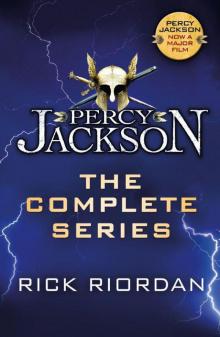 Percy Jackson: The Complete Series
Percy Jackson: The Complete Series Vespers Rising
Vespers Rising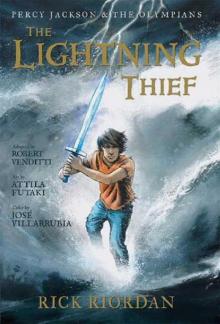 The Lightning Thief: The Graphic Novel
The Lightning Thief: The Graphic Novel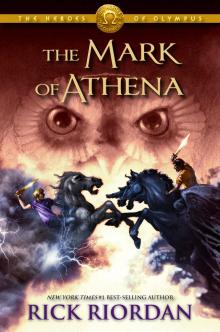 The Mark of Athena
The Mark of Athena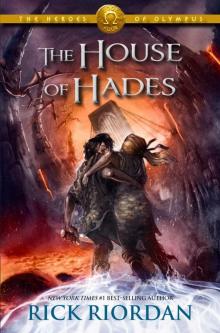 The House of Hades
The House of Hades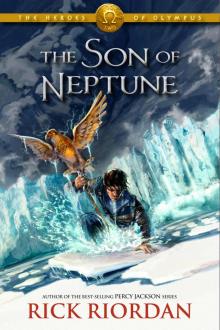 The Son of Neptune
The Son of Neptune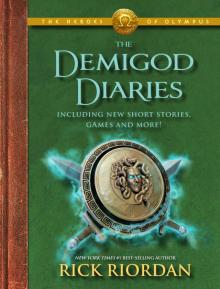 The Demigod Diaries
The Demigod Diaries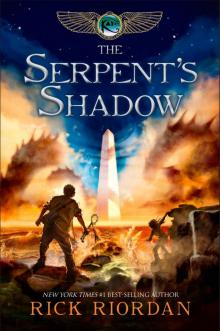 The Serpents Shadow
The Serpents Shadow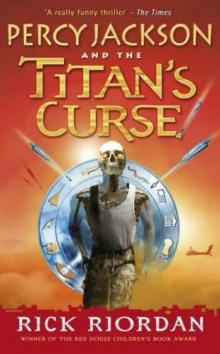 The Titan's Curse pjato-3
The Titan's Curse pjato-3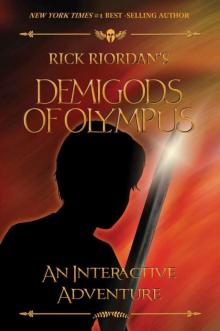 The Demigods of Olympus: An Interactive Adventure
The Demigods of Olympus: An Interactive Adventure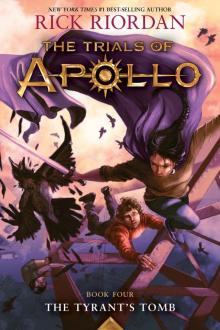 The Tyrant's Tomb
The Tyrant's Tomb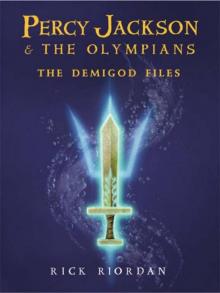 The Demigod Files
The Demigod Files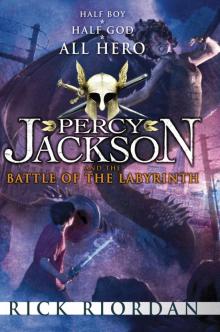 Percy Jackson and the Battle of the Labyrinth
Percy Jackson and the Battle of the Labyrinth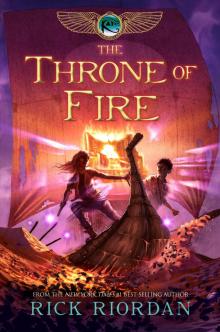 The Throne of Fire
The Throne of Fire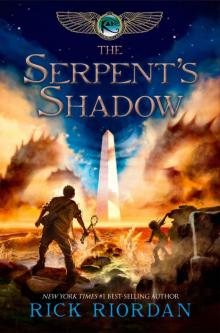 The Serpent's Shadow (The Kane Chronicles, Book Three)
The Serpent's Shadow (The Kane Chronicles, Book Three) Mission Road
Mission Road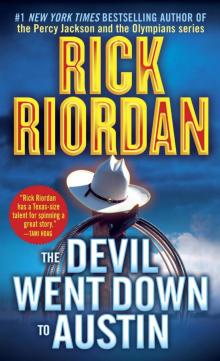 The Devil Went Down to Austin
The Devil Went Down to Austin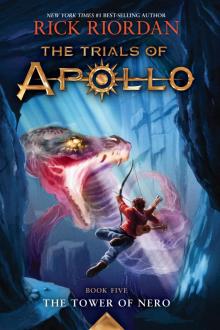 The Tower of Nero
The Tower of Nero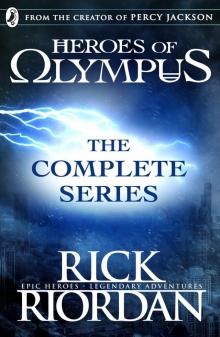 The Heroes of Olympus: The Complete Series
The Heroes of Olympus: The Complete Series Rebel Island
Rebel Island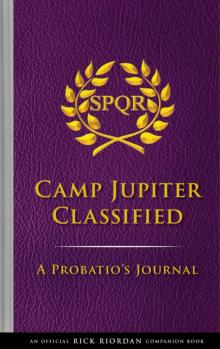 The Trials of Apollo Camp Jupiter Classified: A Probatio's Journal
The Trials of Apollo Camp Jupiter Classified: A Probatio's Journal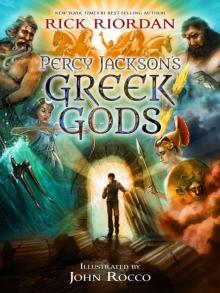 Percy Jackson's Greek Gods
Percy Jackson's Greek Gods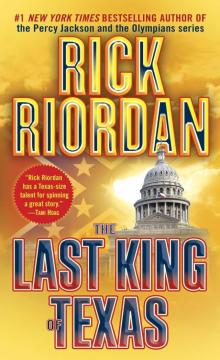 The Last King of Texas
The Last King of Texas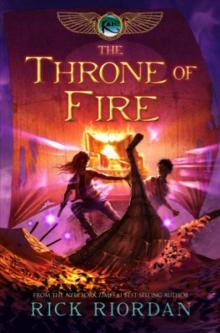 The Throne of Fire kc-2
The Throne of Fire kc-2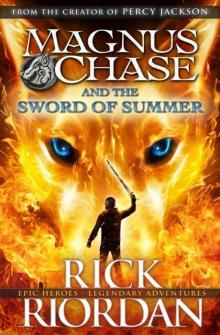 Magnus Chase and the Sword of Summer
Magnus Chase and the Sword of Summer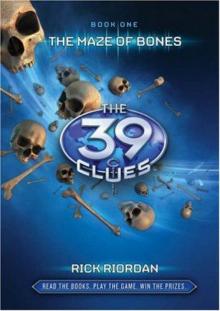 Maze of Bones - 39 Clues 01
Maze of Bones - 39 Clues 01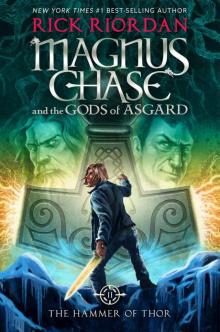 Magnus Chase and the Gods of Asgard, Book 2: The Hammer of Thor
Magnus Chase and the Gods of Asgard, Book 2: The Hammer of Thor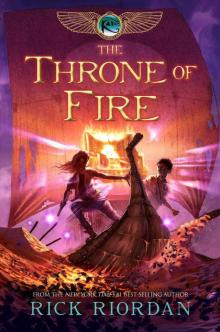 Kane 2 - The Throne of Fire
Kane 2 - The Throne of Fire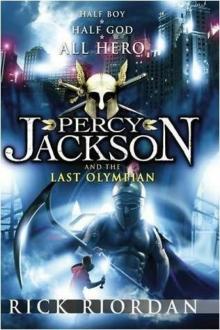 The Last Olympian pjato-5
The Last Olympian pjato-5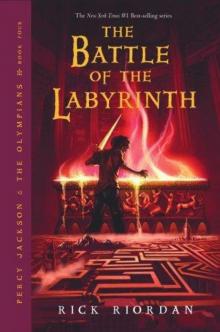 The Battle of the Labyrinth pjato-4
The Battle of the Labyrinth pjato-4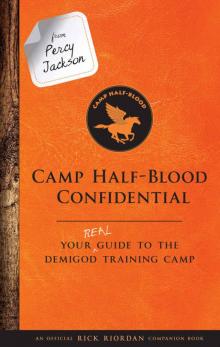 From Percy Jackson: Camp Half-Blood Confidential: Your Real Guide to the Demigod Training Camp (Trials of Apollo)
From Percy Jackson: Camp Half-Blood Confidential: Your Real Guide to the Demigod Training Camp (Trials of Apollo)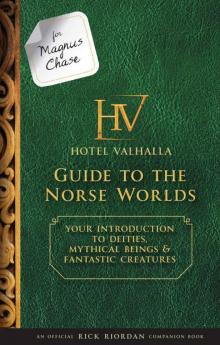 For Magnus Chase: Hotel Valhalla Guide to the Norse Worlds: Your Introduction to Deities, Mythical Beings, & Fantastic Creatures
For Magnus Chase: Hotel Valhalla Guide to the Norse Worlds: Your Introduction to Deities, Mythical Beings, & Fantastic Creatures Southtown tn-5
Southtown tn-5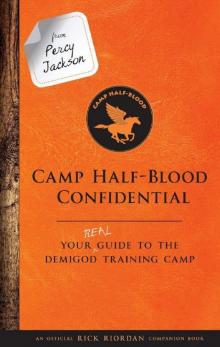 From Percy Jackson_Camp Half-Blood Confidential
From Percy Jackson_Camp Half-Blood Confidential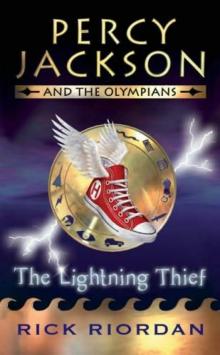 The Lightning Thief pjatob-1
The Lightning Thief pjatob-1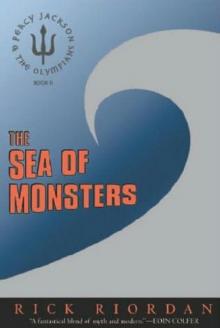 The Sea of Monsters pjatob-2
The Sea of Monsters pjatob-2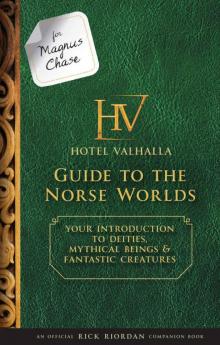 For Magnus Chase_Hotel Valhalla Guide to the Norse Worlds
For Magnus Chase_Hotel Valhalla Guide to the Norse Worlds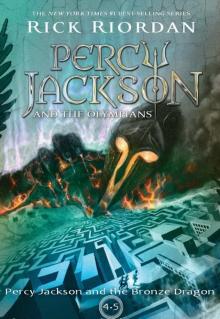 Percy Jackson and the Bronze Dragon
Percy Jackson and the Bronze Dragon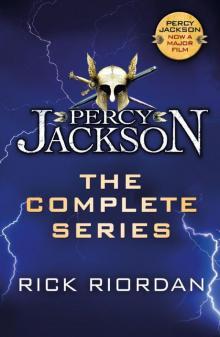 Percy Jackson: The Complete Series (Books 1, 2, 3, 4, 5)
Percy Jackson: The Complete Series (Books 1, 2, 3, 4, 5)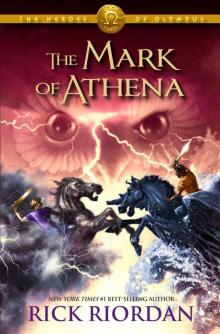 The Mark of Athena (The Heroes of Olympus, Book Three)
The Mark of Athena (The Heroes of Olympus, Book Three)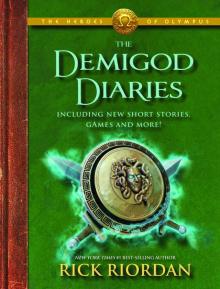 The Heroes of Olympus: The Demigod Diaries
The Heroes of Olympus: The Demigod Diaries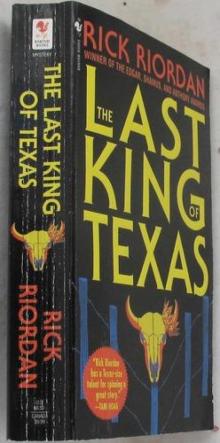 The Last King of Texas - Rick Riordan
The Last King of Texas - Rick Riordan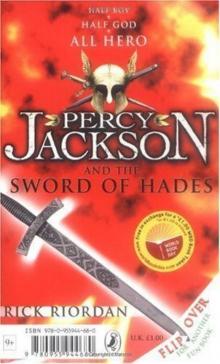 Percy Jackson and the Sword of Hades
Percy Jackson and the Sword of Hades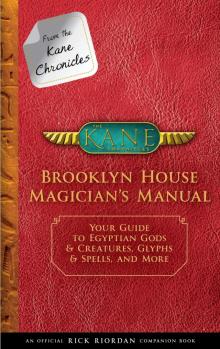 Brooklyn House Magician's Manual
Brooklyn House Magician's Manual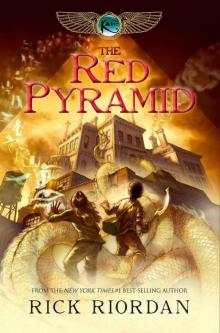 The Kane Chronicles, Book One: The Red Pyramid
The Kane Chronicles, Book One: The Red Pyramid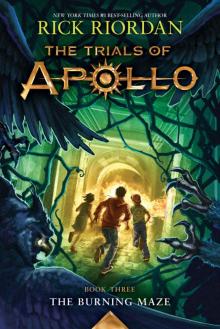 The Trials of Apollo, Book Three: The Burning Maze
The Trials of Apollo, Book Three: The Burning Maze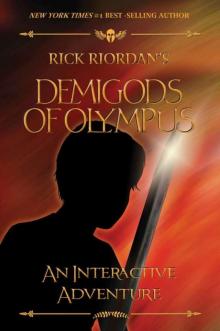 The Demigods of Olympus
The Demigods of Olympus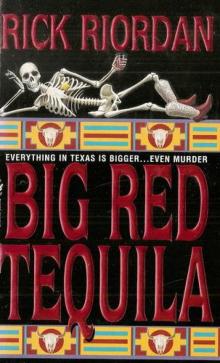 Big Red Tiquila - Rick Riordan
Big Red Tiquila - Rick Riordan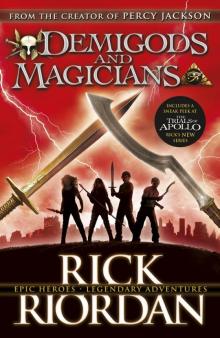 Demigods and Magicians
Demigods and Magicians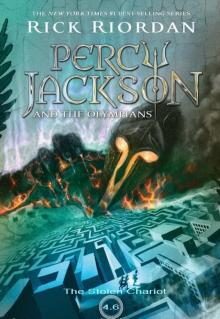 Percy Jackson and The Stolen Chariot
Percy Jackson and The Stolen Chariot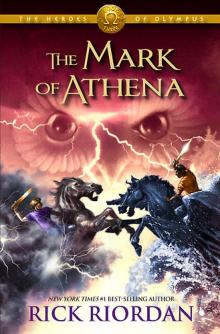 The Mark of Athena hoo-3
The Mark of Athena hoo-3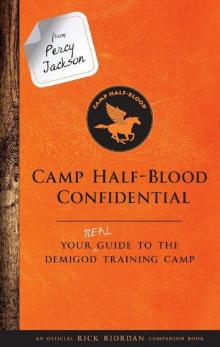 From Percy Jackson: Camp Half-Blood Confidential: Your Real Guide to the Demigod Training Camp
From Percy Jackson: Camp Half-Blood Confidential: Your Real Guide to the Demigod Training Camp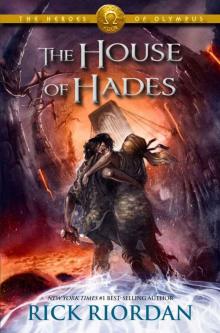 The House of Hades hoo-4
The House of Hades hoo-4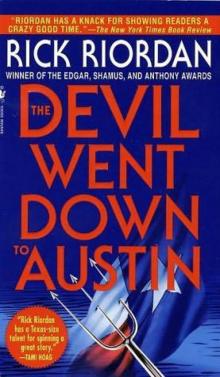 The Devil went down to Austin tn-4
The Devil went down to Austin tn-4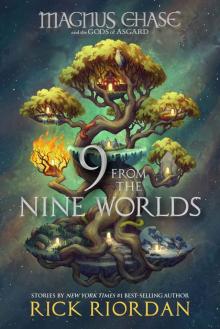 9 from the Nine Worlds (Magnus Chase and the Gods of Asgard)
9 from the Nine Worlds (Magnus Chase and the Gods of Asgard)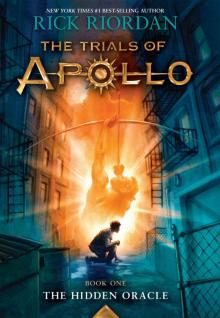 The Trials of Apollo, Book One: The Hidden Oracle
The Trials of Apollo, Book One: The Hidden Oracle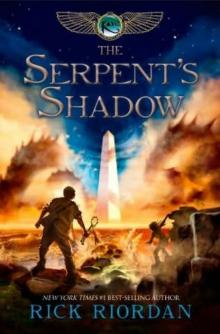 The Serpent's Shadow kc-3
The Serpent's Shadow kc-3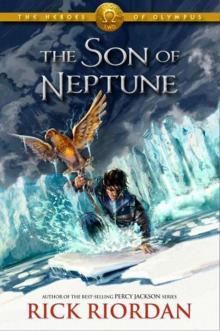 The Son of Neptune hoo-2
The Son of Neptune hoo-2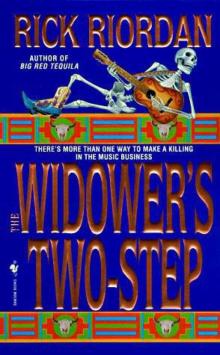 The widower’s two step tn-2
The widower’s two step tn-2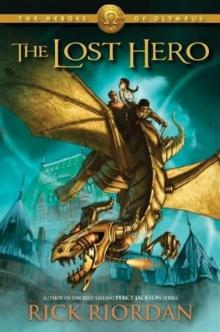 The Lost Hero hoo-1
The Lost Hero hoo-1